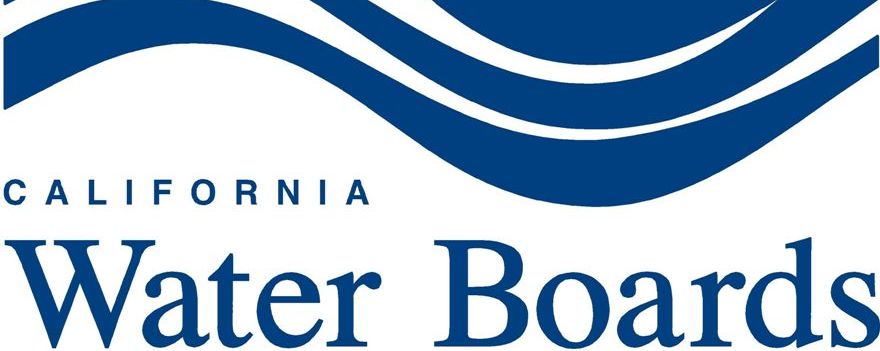 The Executive Director of the State Water Resources Control Board has issued the order, further modifying the previous decision which approved some parts and denied other parts of the State Water Project and federal Central Valley Project’s request for a Temporary Urgency Change Petition.
The Executive Director of the State Water Resources Control Board has issued the order, further modifying the previous decision which approved some parts and denied other parts of the State Water Project and federal Central Valley Project’s request for a Temporary Urgency Change Petition.
The order notes that the TUCP request this year was similar to the one approved for last year, but also the petitioners added an additional request to increase the maximum export rate to 3,500 cfs when Delta outflow is between 5,500 cfs and 7,100 cfs; the Executive Director denied this request. Subsequent to the denial, the State Water Board received written comments, objections, and petitions for reconsideration, as well as holding a public workshop to receive oral comments.
The comments received raised three areas of concern:
1. Whether or not the Executive Director should determine how any water saved by operating to adjusted standards under the February 3 Order may be used;
2. Whether or not export limits in the February 3 Order should be applicable to exports of water transferred between CVP and SWP contractors and pre-1914 appropriative water right holders; and
3. Whether or not Delta outflow and export requirements should be further adjusted to allow for an intermediate level of exports when Delta outflows fall below 7,100 cfs.
The March 5th order modifies the previous decision to specify that the use of water conserved as a result of this approval is modified to specify that Petitioners shall use the conserved water in accordance with their 2015 Drought Contingency Plan and Temperature Management Plan for the Sacramento River; the order clarifies that water transfers are not constrained by the export limits in the Order.
The February 3 Order granted the request to shift natural and abandoned flows from estuarine protection to exports to mitigate some of the devastating water supply impacts that the drought is having on many communities. The March 5 order also considers that the established state policy is that every human being has the right to safe, clean, affordable, and accessible water adequate for drinking, cooking, and sanitary purposes, and so authorizes the use of the intermediate export rate under very limited conditions.
The Order states:
“The February 3 Order and this Order achieve a reasonable balance of competing demands for the limited water supplies available during the ongoing drought, taking into consideration: (1) the impacts of reduced Delta outflows on estuarine species and migrating salmonids in the Bay-Delta, (2) the need to conserve water in upstream storage for multiple, critical purposes later in the year, including temperature control on the Sacramento River to protect endangered winter-run Chinook salmon, agricultural use, wildlife refuges, municipal and industrial use, and salinity control in the Delta, and (3) the need to export water for a variety of uses south of the Delta, including agricultural use, municipal and industrial use, and wildlife refuges.”
The Order acknowledges that all of the proposed changes are likely to have a negative effective on fish and wildlife, but also acknowledges that the human face of suffering, tied to lack of drinking water and loss of jobs, was clearly evident at the February 18 workshop. The Order also notes that “the concurrence letters submitted by the fisheries agencies support the conclusion that the proposed changes in Project operations will not jeopardize the continued existence of threatened and endangered species, but it does not necessarily follow that the changes will not have an unreasonable effect on fish and wildlife. Depending on the circumstances, the effect of a change on a given species may be unreasonable, even if the effect is not likely to cause the extinction of the species.”
Bottom line is this:
“This Order finds that, although the changes approved will have a negative effect on fish and wildlife, the tradeoff, when weighed against the water supply benefits, strikes a reasonable balance between fish and wildlife protection and best serving other needs for water. This Order further finds that unconditional approval of intermediate exports would tip the balance too far in favor of exports, with resulting unreasonable effect on fish and wildlife. Approval of the intermediate export proposal is therefore conditioned upon the Petitioners notifying the Executive Director that additional water is necessary to meet minimum public health and safety needs, and including in this notification a description of the timing and amount of the increase, and the beneficiaries of the increase and the purpose of use of the water.”
Read the full order here: TUCP Order March 5, 2015
UPDATE: The State Water Board issued a press release regarding this order earlier today. It is here: State Water Board Revises Order for State and Federal Water Project Operations During Drought
——————————————–
Get the Notebook blog by email and you’ll always be one of the first to know!
- Sign up for daily emails and get all the Notebook’s aggregated and original water news content delivered to your email box by 9AM. Breaking news alerts like this one, too. Sign me up!
 Maven’s Notebook
Maven’s Notebook
constantly watching over the world of California water


